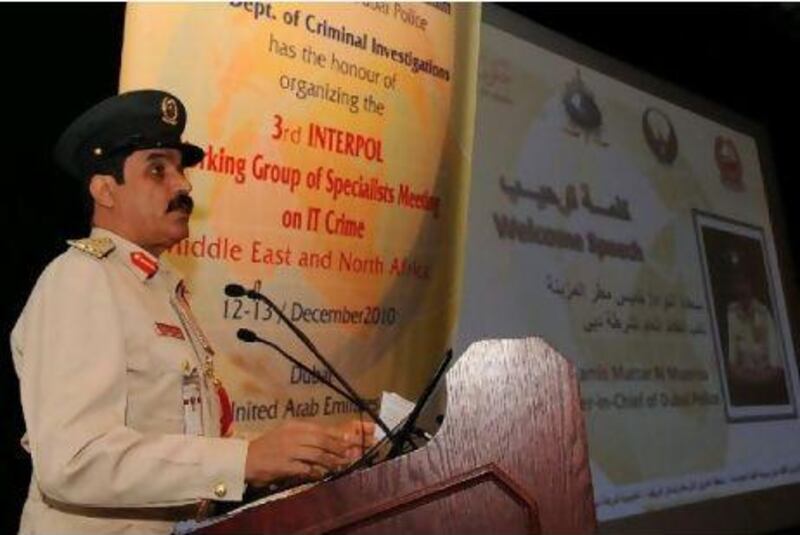DUBAI // Unsupervised access to smart-phone technology and the internet is a threat to children, parents were warned yesterday.
"Parents must understand that the boundaries of their homes in which their children were once safe no longer exist the second an internet cable enters their house," said Major Faisal al Shamari of the Higher Committee for the Protection of Children.
He was speaking in Dubai at the Working Group of Specialists Meeting on IT Crime, hosted by local police authorities in association with Interpol. Although he was unable to provide statistics, Maj al Shamari said incidents of children taking indecent pictures and posting them online were on the increase. "Our investigations suggest that children were using the smart phones to bypass proxies," he said.
He urged parents to be more cautious with technology, and not to leave their children unsupervised when using the internet. He added that he saw no reason for parents to make technology such as web cameras and smart phones available to young people.
"The common sense used by parents in the real world needs to be implemented in the virtual world, too. They need to monitor their children to protect them," Maj al Shamari said.
He referred to a report published around two years ago by Google Trends, which found that "sex" topped the list of search terms used by young Arabs, followed by "terrorism" and "religion".
This, he said, reflected a low level of self-awareness among Arab young people.
"Parents need to create self-awareness among children and educate them about the threats and, at the same time, make sure that their children are not falling victim to abuse," Maj al Shamari said.
The issue of awareness was also raised by Jamie Ansieta, the assistant director of Interpol's Financial and High Tech Crime unit, who was at the meeting to take note of information provided by member countries about cyber crime in the Middle East and North Africa.
"Awareness is important," he said, "as it does not matter how much legislation or enforcement tools there are, the crime will continue to be big if there is not enough awareness about its danger, both on a government and societal level."
Although Dubai Police have set in place a mechanism to combat cyber crimes, including child abuse, Maj Gen Khamis al Mazeina, the deputy police chief, said sexual cyber crime did not exist in the emirate.
"We do not have a single case registered, thanks to our conservative Islamic values, which prevent this from happening," he said.
But the vice president of the Mena Group of Specialists on IT Crime, Lieutenant Colonel Yousef Abdullah, from Kuwait, said those values were being destroyed by cyber crime.
"The region is targeted by political organisations that seek to penetrate the minds of Arab youth and destroy the moral system through pornographic websites," he told the meeting.
The most common cyber crimes in the Gulf region, he said, were defamation and extortion cases, hacking, electronic fraud and phishing.
The group hoped to address these issues during the meeting, which concludes today, and said they would work to find future strategies and mechanisms to combat cyber crime.
The two-day event is part of the preparation for the annual international meeting of cyber crimes experts, which takes place in Lyon, in France, and aims to set a strategy and provide tools to combating cyber crime on a global level.






